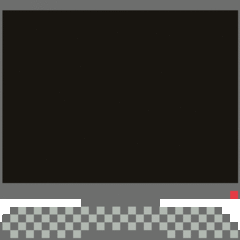How many HZ can a HDMI cable transmit?
HDMI cables are rated by bandwidth. The official certification categories are as follows:
- Standard Speed HDMI Cable — Rated for speeds of at least 2.2275 Gbit/s. This means it will support formats at least up to 720p 60 Hz or 1080p 30 Hz.
- High Speed HDMI Cable — Rated for speeds of at least 10.2 Gbit/s. This means it will support formats at least up to 1080p 144 Hz, 1440p 85 Hz, or 4K 30 Hz. Pretty much any HDMI meets this standard at least.
- Premium High Speed HDMI Cable — Rated for speeds of at least 18.0 Gbit/s. This means it will support formats at least up to 1080p 240 Hz, 1440p 144 Hz, or 4K 60 Hz. Most shorter HDMI cables (5 meters in length) will meet this specification (even if they are not formally certified). Longer cables are less likely to meet this specification, so if you want a 10+ meter cable, make sure you get one that actually has a Premium High Speed certification.
- Ultra High Speed HDMI Cable — This certification level will certify cable for speeds of at least 48.0 Gbit/s, which is enough for 4K 180 Hz or 8K 50 Hz. The certification procedures for this level are not finished yet, so these certifications are not being issued at this time. Any cables currently claiming to be an Ultra High Speed HDMI cable are fake.
If you want to run 1080p 144 Hz, you only need a High Speed HDMI cable, which is basically any HDMI cable.
But the cable is not really the important part. The maximum refresh rate available to you will depend mainly on the HDMI speeds supported by the monitor, which could be anything.
And don't be fooled by version numbers in this area; many people will tell you "as long as the monitor has HDMI 1.4, it should support 1080p 144 Hz", because the maximum bandwidth of HDMI 1.4 is 10.2 Gbit/s, which is enough for 1080p 144 Hz. However, that is only the maximum allowed by the standard. It does not mean every HDMI 1.4 monitor supports that bandwidth. Individual products may have limits below that.
Many newer 1080p 144 Hz monitors with HDMI 1.4 only support 9.0 Gbit/s, only enough for 120 Hz over HDMI. Even older models like the VG248QE (which still have "HDMI 1.4") are limited to less, only enough for 60 Hz over HDMI.
If you want to run 144 Hz over HDMI you need a monitor that specifically supports it (like the ViewSonic XG2401). Not all monitors do. And the "HDMI version" of the monitor does not tell you whether it does or not.

















Create an account or sign in to comment
You need to be a member in order to leave a comment
Create an account
Sign up for a new account in our community. It's easy!
Register a new accountSign in
Already have an account? Sign in here.
Sign In Now